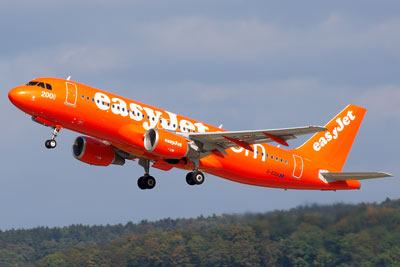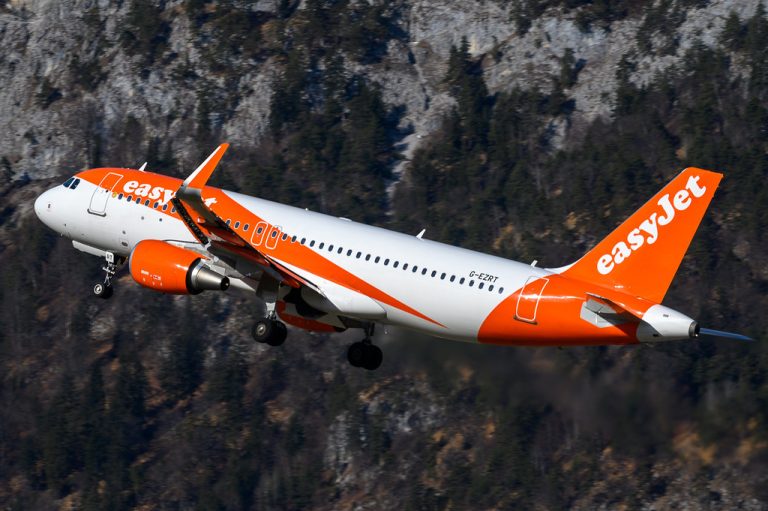easyJet plc (LON:EZJ) has reported a 9% increase in headline profit before tax (PBT) to £665 million for the twelve months ended 30 September 2025, marking its third consecutive year of earnings growth. Headline earnings before interest and tax (EBIT) rose by 18% year on year to £703 million, driven by an increase of £50 million in airline EBIT and £56 million in holidays EBIT.
The airline division delivered a headline PBT of £415 million. Available seat kilometres (ASKs) increased 9% year on year, while total revenue per seat rose by 2%. However, airline revenue per available seat kilometre (RASK) fell 3%. The cost per available seat kilometre (CASK) improved by 3%, reflecting a 1% improvement in CASK excluding fuel and a 7% improvement in fuel CASK.
easyJet holidays reported a PBT of £250 million, achieving its previous medium-term target ahead of schedule. The business has now upgraded its PBT target to £450 million by FY30. The return on capital employed (ROCE) rose by two percentage points to 18%.
Operational performance improved, with on-time performance rising three percentage points to 72%. Customer satisfaction (CSAT) scores increased four percentage points to 80%, with easyJet holidays reaching 83%, the highest level in over a decade.
The Group continues to progress towards its medium-term ambition of generating more than £1 billion in PBT. Net cash improved to £602 million, up £421 million year on year. During FY25, easyJet received nine new A320 aircraft and repurchased eight leased aircraft, contributing to structural cost efficiencies. The net book value of owned assets stands at £4.8 billion and is expected to exceed £7.5 billion by FY28.
The Board has proposed a dividend of 13.2 pence per share, equivalent to 20% of headline profit after tax, to be paid on 27 March 2026, subject to approval. This represents a total distribution of £100 million.
Looking ahead to FY26, ASK capacity is expected to grow by approximately 7%, with a 4% increase in average sector length. The airline plans to deliver 17 new A320neo aircraft, with further deliveries of 30 and 43 aircraft in FY27 and FY28 respectively. Three aircraft are scheduled for retirement in FY26. Growth in the first half of FY26 will be supported by the full-year impact of new bases opened in FY25.
easyJet holidays expects customer numbers to increase by up to 15% from a base of 3.1 million, with 80% of H1’26 already sold at higher average selling prices. New bases in Newcastle and Marrakech will each be allocated three aircraft.
Q1’26 is 81% sold, up two percentage points year on year. Q2’26 is 26% sold, up one percentage point, with early signs of pricing improvement. Headline CASK in FY26 is forecast to see modest inflation, as operational efficiencies and favourable fuel pricing partially offset broader cost pressures. The airline expects material benefits from fleet upgauging in FY27 and FY28 as older A319 aircraft are retired.
Kenton Jarvis, Chief Executive Officer of easyJet, stated that the company has achieved a 46% increase in profit before tax since setting its medium-term targets in 2023, including 9% growth in the current year. He highlighted the early achievement of the easyJet holidays PBT target and the subsequent upgrade. Jarvis also pointed to improved punctuality and customer satisfaction, noting that easyJet remains focused on providing affordable travel while supporting economic growth.
The Group continues to pursue its net zero roadmap. easyJet is on track to meet its science-based target of a 35% reduction in carbon intensity by 2035. In FY25, it was ranked the top airline globally for ESG risk by Sustainalytics and retained high ratings from MSCI and CDP.
Group revenue rose by 9% year on year to £10.1 billion. Passenger numbers increased by 4% to 93.4 million, with seat capacity up 4% to 104.0 million. The load factor improved slightly to 89.8%. In Q4 alone, easyJet flew 28.1 million passengers, up from 27.7 million in Q4 FY24.
Group EBITDA increased by 6% to £1.45 billion. Fuel costs fell slightly by 1% to £2.25 billion, while total headline CASK declined 3% to 6.14 pence. Headline earnings per share rose to 66.4 pence, up from 61.3 pence in FY24.
easyJet continues to hedge its fuel and currency exposures and remains fully covered for its 2025 carbon obligations. The company reports improved visibility on its future fleet delivery profile, supporting its long-term strategic objectives.










































